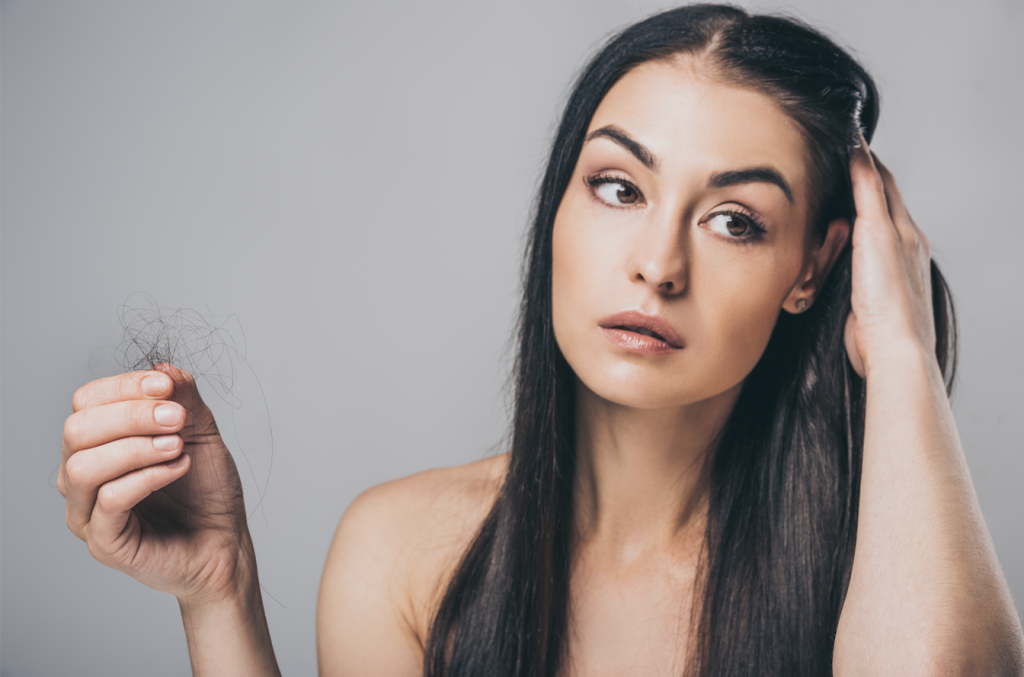 Our hormones do a lot of work for us beyond making teenagers moody and distracted. Throughout our lives, hormones continue to perform vital functions for our overall health and well-being. But our bodies are imperfect machines and can either produce too many or too few of the hormones we need. These imbalances can throw normal processes out of whack, including the natural hair growth cycle.
Our hormones do a lot of work for us beyond making teenagers moody and distracted. Throughout our lives, hormones continue to perform vital functions for our overall health and well-being. But our bodies are imperfect machines and can either produce too many or too few of the hormones we need. These imbalances can throw normal processes out of whack, including the natural hair growth cycle.
Many cases of hair loss can be traced, in whole or in part, to hormone imbalances. Fortunately, medication and other treatments are available to restore balance to hormones and restore hair lost because of overactive or underactive hormone production.
How Do Hormones Affect Hair Growth and Loss?
Multiple hormones can impact the growth, strength, and health of our hair. The most common problems with hormone imbalances that can contribute to hair shedding and loss include:
- A synthesized version of testosterone, DHT plays a role in sexual development and physical appearance. When too much testosterone gets converted into DHT, the natural growth cycle of hair is disrupted, causing hair follicle shrinkage or elimination and ultimately resulting in shedding or thinning hair.
- Menopausal hair loss. Women going through menopause produce lower levels of estrogen and progesterone – two hormones critical for hair growth and follicle health. As these hormone levels decrease, hair growth slows while follicles become thin, brittle, and more vulnerable to damage. Making matters worse, the decrease in hair-promoting hormones is accompanied by an increase in androgens – hormones which trigger follicle miniaturization on the scalp. This miniaturization makes hair more susceptible to falling out.
- Insulin Resistance. When the body fails to regulate insulin production properly, the body can build up a resistance to this hormone, which can, in turn, lead to an increased risk of androgenetic alopecia, or pattern baldness.
Medication and Other Treatments to Restore Balance and Restart Hair Growth
If you are experiencing hair loss and want to address the issue, the first step is identifying the causes behind the problem. Your physician plays an indispensable role in that process, including testing you for hormone and glucose imbalances. If you are indeed having trouble with hormone production, your doctor can prescribe medication which can help restore balance. Lifestyle changes, such as a healthier diet, exercise, and stress reduction will also help you get your hormone levels back on track.
Once equilibrium is restored to your hormones, hair loss associated with your hormone issue should slow or cease, and in many cases, hair that was loss may be replaced by new growth.
Additionally, many treatments we offer at the Hair Transplant Institute of Miami to treat other forms of hair loss are equally effective at addressing hair loss caused by hormonal imbalances. These can include hair transplant surgery, low-level laser therapy (LLLT), or hair loss medications.
Given the complications involved in hormone disorders and their treatment, only a consultation and full evaluation with an experienced hair loss physician can tell you which hair restoration treatment would be best for you.
Schedule an Appointment for a Hair Loss Evaluation Today
If a hormone imbalance is contributing to hair loss, the Hair Transplant Institute of Miami can help. We offer a range of effective treatments, customized to your individual condition. To receive a personalized evaluation and treatment plan, contact us online or call our office directly at 305-925-0222.

